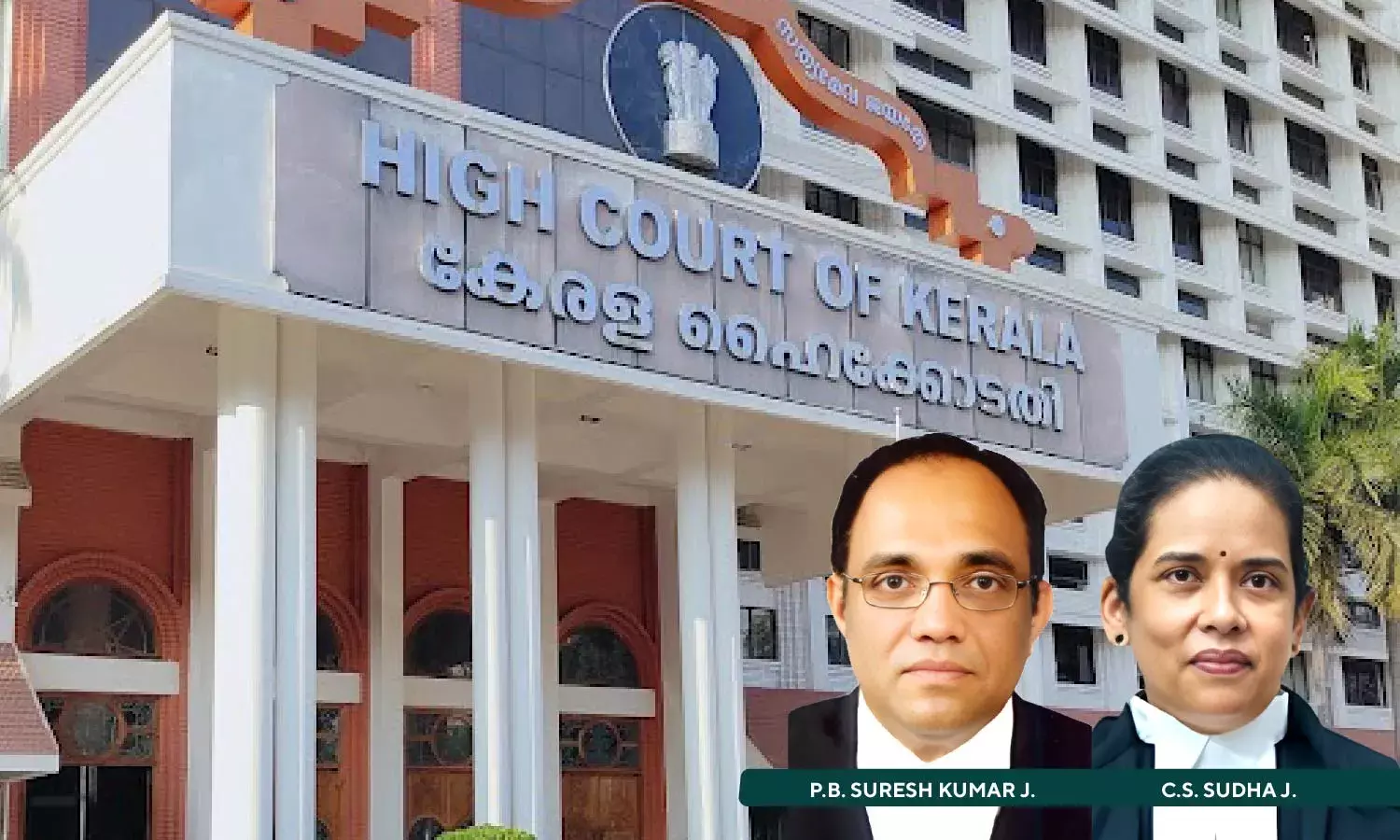Delay In Lodging FIR If Sufficiently Explained Is Not Fatal To Prosecution: Kerala HC While Affirming Rape Conviction

While dealing with the case wherein the father (Appellant-convict) had challenged his conviction passed by the Trial Court for sexually abusing and beating up his minor daughter, now major, with dangerous weapons, the Kerala High Court affirmed the conviction of the Appellant but modified the sentence for the offence punishable under Section 376(2)(f) of the Indian Penal Code, 1860 to rigorous imprisonment for 20 years, instead of imprisonment for the remainder of his natural life.
A Division Bench of Justice P.B. Suresh Kumar and Justice C.S. Sudha observed that “True, Sections 376(2)(f) and 376(2)(n) of IPC provide for a sentence of imprisonment for life which shall mean imprisonment for the remainder of the natural life of the accused. But it is now settled that the constitutional courts are empowered to modify the punishment within the punishment provided for in the IPC for specified offences”.
Further, the delay in lodging the First Information Report will not be fatal, if the same is satisfactorily explained, added the Bench.
Advocate V.K Hema appeared for the Appellant/Accused, whereas Special G.P Ambika Devi S. appeared for the Respondent/Complainant.
Going by the background of the case, it was the case of the prosecution that the Appellant used to beat his daughter with dangerous weapons while she was a juvenile and had committed rape on her right from her childhood. On an appraisal of the evidence on record, the Trial Court found the Appellant guilty of offences punishable under Sections 376(2)(f) and 376(2)(n) of IPC and Section 23 of the JJ Act, 2000. The Appellant was accordingly convicted and sentenced to undergo imprisonment for the remainder of his natural life and to pay a fine of Rs.1,00,000/- and in default of payment of the fine, to undergo simple imprisonment for two years for the offence punishable under Section 376(2)(f) of IPC. He was also sentenced to undergo rigorous imprisonment for 6 months for the offence punishable under Section 23 of the JJ Act, 2000.
After considering the submission, the Bench stated that to prove the accusation of sexual assaults committed on the victim, the prosecution had only the evidence of the victim.
“It is trite that a conviction could be found on the testimony of a prosecutrix alone in a case under Section 376 of IPC and no doubt, the evidence of the prosecutrix in such cases was of a sterling quality unless there are compelling reasons for seeking corroboration”, added the Bench.
The Bench was of the view that the evidence tendered by the victim appeared to be natural and consistent with the case of the prosecution and the core spectrum of the crime remained intact throughout the cross-examination.
“PW1 has not given room for any doubt as to the material particulars deposed by her, especially about the sexual assaults committed on her by the appellant-convict. The evidence tendered by her has a co-relation with every other supporting evidence, including the expert opinion given by the doctor who examined her”, added the Bench.
The Bench highlighted that the victim could certainly be regarded as a sterling witness and the Trial Court was justified in holding that the Appellant-convict was guilty of the offences punishable under Sections 376(2)(f) and 376(2)(n) of IPC and Section 23 of the JJ Act, 2000.
While disagreeing with the Appellant-convict that the victim had not complained about the alleged sexual assaults till she attained the age of 19 years and thus her evidence needed to be scrutinized with caution, the High Court stated that a child who was subjected to sexual assault by her father, not disclosing the same to anyone during her childhood, is of no reason to think that what was spoken to by her at a matured age was false.
Clarifying that no daughter would depose against her father in a manner in which the victim in the case on hand had deposed, for a flimsy reason that the Appellant-convict used to scold her for showing reluctance to go to school, the High Court rejected the argument by the Appellant that delays in lodging the FIR were fatal to the case of the prosecution.
Therefore, the High Court modified the sentence imposed on the accused for the offence punishable under Section 376(2)(f) of the IPC to rigorous imprisonment for 20 years, instead of imprisonment for the remainder of his natural life.
Cause Title: Raju v. State of Kerala
Click here to read/download the Judgment

